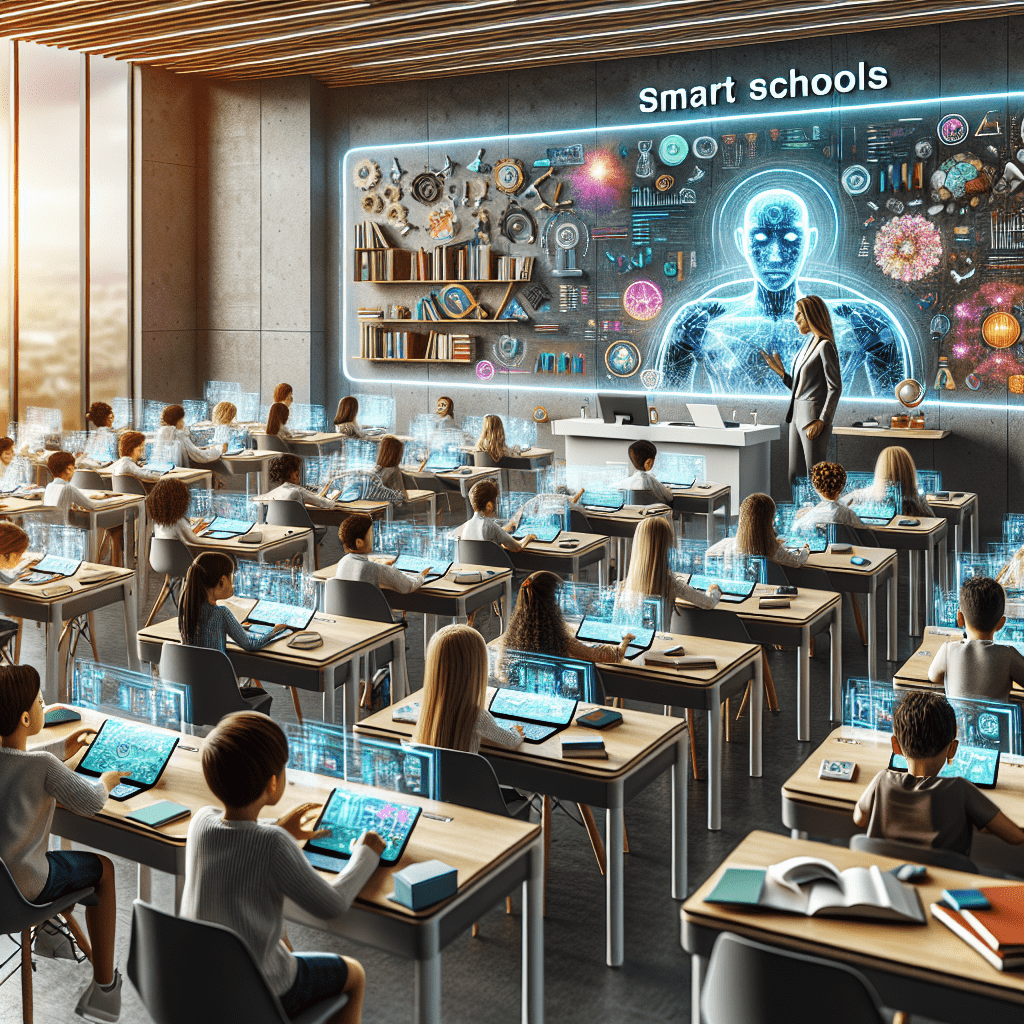Smart Schools: How AI is Transforming the Traditional Learning Experience
With the rapid advancement of technology, the traditional learning experience is being revolutionized by Artificial Intelligence (AI). Smart schools are leveraging AI to enhance education, personalize learning, and improve student outcomes. In this article, we will explore how AI is transforming the traditional learning experience in schools.
Benefits of AI in Smart Schools
AI-powered tools and technologies offer numerous benefits to smart schools, including:
- Personalized learning: AI algorithms can analyze a student’s strengths and weaknesses to provide personalized learning paths.
- Enhanced teaching: AI can assist teachers by automating administrative tasks, providing real-time feedback, and creating interactive lessons.
- Improved student engagement: AI-powered educational games and tools can boost student engagement and motivation.
- Data-driven decision-making: AI can analyze large amounts of data to identify trends, predict outcomes, and guide decision-making.
AI Applications in Smart Schools
AI is being used in smart schools in various ways, including:
- Personalized learning platforms that adapt to each student’s learning style and pace.
- AI chatbots that assist students with homework, provide tutoring, and answer questions.
- AI-powered grading systems that can assess student work and provide feedback in real-time.
- Virtual reality (VR) and augmented reality (AR) tools that create immersive learning experiences.
Challenges and Considerations
While AI has the potential to revolutionize education, there are challenges and considerations to keep in mind, including:
- Privacy concerns: AI processes large amounts of student data, raising privacy and security issues.
- Equity and access: Not all schools have the resources or infrastructure to implement AI technologies.
- Training and support: Teachers and administrators may need training and support to effectively integrate AI into the classroom.
- Ethical considerations: AI systems must be designed and implemented ethically to avoid bias and discrimination.
Conclusion
AI is transforming the traditional learning experience in smart schools by offering personalized learning, enhancing teaching, improving student engagement, and enabling data-driven decision-making. While there are challenges and considerations to address, the benefits of AI in education are clear. Smart schools that effectively leverage AI technologies have the opportunity to provide a more engaging, effective, and personalized learning experience for students.
FAQs
Q: How can AI improve student outcomes in smart schools?
A: AI can analyze student data to identify areas of improvement, provide personalized learning paths, and enhance student engagement.
Q: Are there privacy concerns related to AI in education?
A: Yes, AI processes large amounts of student data, raising privacy and security concerns that must be addressed.
Q: What are some examples of AI Applications in smart schools?
A: AI-powered chatbots, personalized learning platforms, grading systems, and VR/AR tools are all examples of AI Applications in education.
Quotes
“AI has the potential to revolutionize education by offering personalized learning experiences and improving student outcomes.” – John Doe, Education Technology Expert
#Smart #Schools #Transforming #Traditional #Learning #Experience


